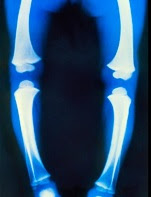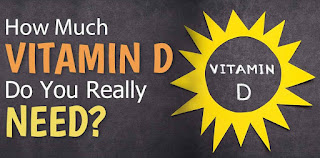New guidance today from Public Health England says yes – and
EVERYONE should consider taking a vitamin D supplement.
See today’s press
release from PHE here: https://www.gov.uk/government/news/phe-publishes-new-advice-on-vitamin-d
Why do we need vitamin D?
Vitamin D regulates the amount of
calcium and phosphate in the body to help maintain bone and muscle health and keep
our teeth healthy. If you don’t get
enough, it can lead to things like
rickets (in children) and osteomalacia -
ie muscle pain and weakness, and loss of
bone strength (in adults and the elderly).
Where do we get vitamin D?
 Vitamin D is often called "The sunshine vitamin". Its an unusual one as its exposure to SUNSHINE - not food - that is our main source of vitamin D. That's why there have been lots of studies and a raised awareness, especially in the UK, about vitamin D levels and whether we in fact get enough. We all know we never get enough sunshine!
Vitamin D is often called "The sunshine vitamin". Its an unusual one as its exposure to SUNSHINE - not food - that is our main source of vitamin D. That's why there have been lots of studies and a raised awareness, especially in the UK, about vitamin D levels and whether we in fact get enough. We all know we never get enough sunshine!
Who needs vitamin D?
It’s been recommended for a while
that children and the elderly therefore take a vitamin D supplement to maintain
healthy levels – and this should be taken especially during the winter months
(October-March) in the UK.
Currently 1 in 5 (UK) adults are not getting enough! (*stats from PHE 2015)
Public Health England have today
widened their recommendation to include everyone. From children and the elderly to people who don’t
get much exposure to sunlight, who don’t get outside much (again often the
elderly, ill or incapacitated), plus people with darker skins (as they require
more sunshine to process and convert the vit D from), and to people who cover
up – maybe those with very fair skin avoiding sunburn, skin cancer etc (very
wise) or those who are covered for religious purposes etc. Now as well as extending the idea of
supplementation to these at higher risk groups, Public Health England have
recommended we ALL take a supplement – and perhaps not only during the winter
months.
This new recommendation is based
on this health report from SACN – The Scientific Advisory Committee on Nutrition: https://www.gov.uk/government/publications/sacn-vitamin-d-and-health-report
How much vitamin D do we need?
Basically in the UK – as we at no
nonsense nutrition have been saying for a while -, we simply don’t get enough
sun. You know this – this is not
news! BUT the news is that without soaking up enough
sunshine, we simply can’t soak up enough vitamin D.
The RDA (recommended daily
allowance) for adults in the UK is 10 micrograms. However although we know we can get the most
of this from sunlight, it’s very hard to measure exactly how much we get and
how much we are able to convert, which is why as well as getting as much
sunlight – SAFELY – as possible during the summer months, we should take a
daily supplement to ensure we all meet the RDA.
Why supplementation?
Let me just say first – it’s not
a scam to make you buy expensive pills!
In fact vitamin D supplements are available for free to low income
families via the Healthy Start scheme.
You can find out if you qualify and more about vitamins from Healthy
Start here: https://www.healthystart.nhs.uk/for-health-professionals/vitamins/
But you may be asking yourself
why it’s not been recommended that you top up on foods rich in vitamin D? Well, that’s because the levels of vitamin D
contained in food are not usually high enough and a lot more difficult for our
bodies to process than from sun.
Foods
that do contain vitamin D however are things such as:
OILY FISH (mackerel, salmon)
RED MEAT and LIVER
EGGS
FORTIFIED CEREALS
MUSHROOMS
and some CHEESE
No nonsense nutrition - conclusion
So, our conclusion on this new recommendation today – do it. All of it.
When the sun shines – get out and enjoy it – SAFELY. When you shop, buy foods rich in vitamin D
too – if you eat meat and fish ensure you have a few portions every week of the
good stuff, the oily fish and the unprocessed red meats. It’s the yolk in eggs that can provide a vit
D boost, so make sure you eat the yolks!
And if you like cereals choose the fortified ones. You may find that milk (especially the non-dairy
varieties) are now fortified with calcium and vitamin D too which is good
news.
(Sun safety)
As a last note – I hope it goes without saying – but please
enjoy the sun safely. The info here
should help you understand a little more:
And especially on days like these remarkably hot ones we’ve
had recently have a think along the lines of Public Health Englands
#HeatHealthWatch – There is some great stuff on their blogs here too:
**Please remember this is advice ONLY (as is all other
information contained in this blog, the website and social media related to it)
None of the info or advice is intended to override any recommendation from your
GP or health professional**




No comments:
Post a Comment